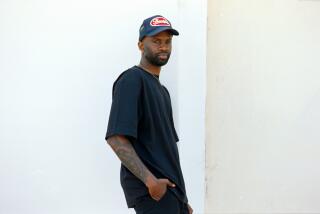A civil rights photographer’s march through years of American struggle
In November 1962, photographer Steve Schapiro came across an essay in the New Yorker by James Baldwin. The Harlem-born civil rights activist and essayist had written a letter, titled “My Dungeon Shook,” to his 14-year-old nephew on the 100th anniversary of the Emancipation Proclamation. Later published under the title “The Fire Next Time,” Baldwin addresses his experience as a black man in America.
Baldwin’s words have been paired with 100 of Schapiro’s black and white images, some previously unpublished, in a new art edition from Taschen called “The Fire Next Time.” An exhibition of Schapiro’s photos, “Freedom Now. Civil Rights Photographs: 1963-1968,” are at Fahey/Klein Gallery through Sept. 2.
“After Life magazine agreed to let me do a photo essay on Baldwin, I spent a month traveling with Jimmy through the South starting in Harlem to North Carolina, Mississippi and New Orleans,” Schapiro said, adding how Baldwin introduced him to key leaders of the civil rights movement including the Rev. Martin Luther King Jr., Ralph Abernathy, Jerome Smith, Andrew Young and a young John Lewis.
In Mississippi, Schapiro captured Baldwin in intimate conversation with Medgar Evers just a few months before the latter was slain. Schapiro photographed the March on Washington for Jobs and Freedom, two of the three Selma, Ala., marches and the Freedom Summer Voting Rights campaign.
“Baldwin was a great thinker and incredible speaker but in a different way from MLK. He spoke in small, intimate groups,” Schapiro said, adding that Baldwin’s frankness wasn’t always embraced as readily as King’s message. “He was trying to be factual about where we were and what the black situation was in America.”
One image Schapiro points out shows a black woman holding a sign with three words: “Stop police killings.” “It relates to what’s going on today in such a strong way with Ferguson and other similar incidents like that,” he said. “That photo was taken in 1965. It really hit me in terms of where we are now in this country.”
SIGN UP for the free Essential Arts & Culture newsletter »
Support coverage of the arts. Share this article.
More to Read
The biggest entertainment stories
Get our big stories about Hollywood, film, television, music, arts, culture and more right in your inbox as soon as they publish.
You may occasionally receive promotional content from the Los Angeles Times.










